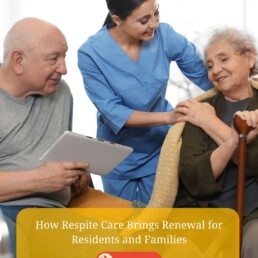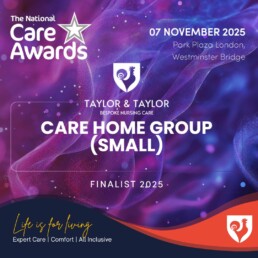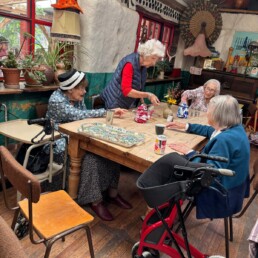Emergency Preparedness in Care Homes: Keeping Residents Safe
In a care home setting, safety is not just a policy—it’s a way of life. Residents, especially older adults, are more vulnerable to environmental changes, health incidents, and power-related disruptions. That’s why robust emergency preparedness is essential for ensuring their safety, wellbeing, and peace of mind.
Why Emergency Preparedness Matters Older adults are more susceptible to the effects of extreme weather, sudden illness, or disruptions to heating, lighting, and mobility aids. For many residents, quick response and clear communication during emergencies are not just reassuring—they can be life-saving.
Common Emergencies Care Homes Must Be Ready For
- Power Outages: Loss of electricity can impact lighting, heating, medical devices, kitchen operations, and more.
- Heatwaves: Older adults can suffer from heatstroke, dehydration, or cardiovascular strain during extreme temperatures.
- Cold Snaps and Snowstorms: Icy conditions pose fall risks and may delay medical access or deliveries.
- Medical Emergencies: Cardiac events, falls, or sudden illness require immediate and efficient response.
- Infectious Outbreaks: Fast containment measures and infection control can prevent spread.
Preparedness Protocols at Shipston Lodge
- Power Backup Systems: We have emergency generators and UPS units to keep vital systems running during power cuts.
- Temperature Control Plans: Our team monitors weather warnings and adjusts cooling or heating systems accordingly, while ensuring residents stay hydrated and comfortable.
- Emergency Medical Training: All staff are trained in first aid, CPR, and how to escalate medical concerns swiftly.
- Clear Evacuation Procedures: Fire drills, accessible exit points, and mobile-friendly emergency kits are in place.
- Communication Plans: Family members are updated via phone or email, and all residents are kept informed with simple, reassuring language.
Team Coordination and Staff Training Our care team undergoes regular emergency response training, including:
- Annual scenario-based drills
- Recognising vulnerable individuals
- Coordination with local authorities and emergency services
- Documentation and checklists for high-risk scenarios
Resident-Centred Emergency Plans Each resident has a personalised care plan, which includes:
- Emergency contact details
- Medication lists and essential medical equipment
- Mobility and communication needs
- Specific vulnerabilities to temperature or stress
Family Reassurance and Involvement We believe families are key partners in safety. During critical events, families are notified early, and provided with ongoing updates. We also encourage families to keep emergency contact numbers current and participate in our safety education materials.
Conclusion Safety is about foresight, preparation, and calm execution. At Shipston Lodge, we prioritise emergency preparedness as a vital part of our care commitment. Families can rest easy knowing that their loved ones are protected by a team ready to respond with compassion, clarity, and control.
Related News
A Sense of Belonging: Building Community and Connection at Shipston Lodge
A Sense of Belonging: Building Community and Connection at Shipston Lodge Feeling part of a…
Mindful Living in Later Life: Supporting Emotional Balance and Inner Calm
Mindful Living in Later Life: Supporting Emotional Balance and Inner Calm As we age, life often…
The Art of Rest: How Respite Care Brings Renewal for Residents and Families
The Art of Rest: How Respite Care Brings Renewal for Residents and Families Caring for a loved one…
Check out our September Social Media posts
https://shipstonlodge.co.uk/wp-content/uploads/2025/10/Yoga2.mp4……
Taylor & Taylor Care Named Finalist at National Care Awards 2025
Proud to Be Finalists: Taylor & Taylor Care Shortlisted at the National Care Awards 2025 At…
Check out our August Social Media posts
Afternoon Delights at Wychford Potteries & Café! What a…
Using Aromatherapy and Natural Remedies in Care Settings
Using Aromatherapy and Natural Remedies in Care Settings Incorporating natural remedies into care…
Sleep and Ageing: How to Promote Restful Nights in Later Life
Sleep and Ageing: How to Promote Restful Nights in Later Life As we age, the quality and patterns…
Check out our July Social Media posts
Musical Fun with Kidley Divey We had a fantastic and energetic…
Why Location Matters: The Benefits of Life in the Heart of Shipston-on-Stour
Why Location Matters: The Benefits of Life in the Heart of Shipston-on-Stour The location of a…
Staying Connected: How Shipston Lodge Helps Families Stay Close
Staying Connected: How Shipston Lodge Helps Families Stay Close Moving into a care home is a…
Life Stories and Legacy: Celebrating Residents’ Histories at Shipston Lodge
Life Stories and Legacy: Celebrating Residents’ Histories at Shipston Lodge At Shipston Lodge, we…











